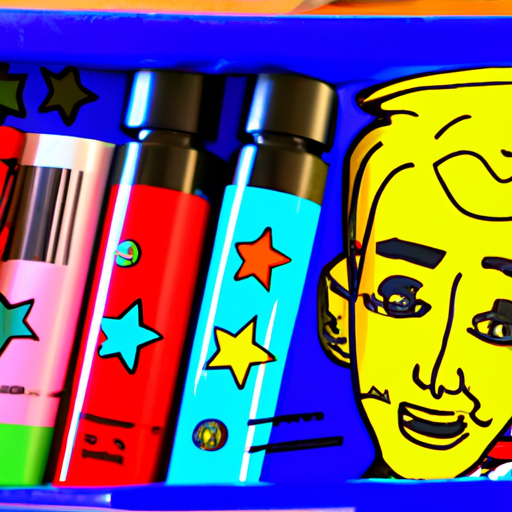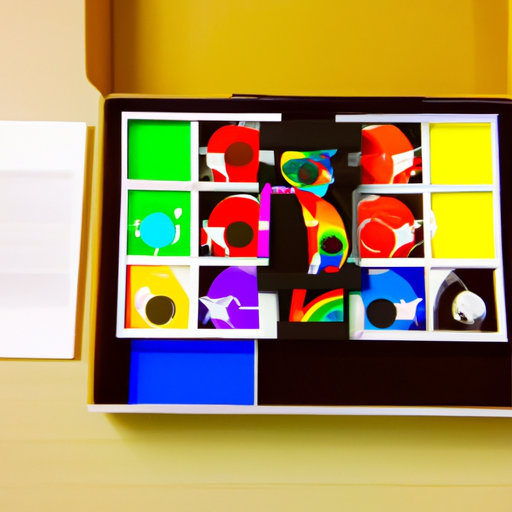
-
Table of Contents
- Packaging for Art Supplies: Creativity in a Box
- The Role of Packaging in the Art Supply Industry
- The Elements of Effective Art Supply Packaging
- Examples of Innovative Art Supply Packaging
- 1. Winsor & Newton Professional Watercolor Tubes
- 2. Copic Marker Sets
- 3. Moleskine Sketchbooks
- The Impact of Packaging on the Artist’s Experience
- The Future of Art Supply Packaging
- Summary
Packaging for Art Supplies: Creativity in a Box

Art supplies are essential tools for artists to express their creativity and bring their imagination to life. From paints and brushes to sketchbooks and pencils, these supplies play a crucial role in the artistic process. However, the packaging of these art supplies is often overlooked, despite its significant impact on the overall user experience. In this article, we will explore the importance of packaging for art supplies and how it can enhance the creativity of artists.
The Role of Packaging in the Art Supply Industry
Packaging serves multiple purposes in the art supply industry. It not only protects the products during transportation and storage but also acts as a marketing tool to attract potential buyers. The packaging design can communicate the brand’s identity, values, and the unique features of the art supplies. It is the first point of contact between the product and the consumer, making it crucial for creating a positive impression.
Art supply packaging should be visually appealing and reflect the creativity and artistic nature of the products inside. It should capture the attention of artists and inspire them to explore the contents of the package. A well-designed package can evoke emotions and create a sense of anticipation, enhancing the overall experience of using the art supplies.
The Elements of Effective Art Supply Packaging
When designing packaging for art supplies, several elements should be considered to ensure its effectiveness:
- Visual Appeal: The packaging should be visually appealing and eye-catching. It should use colors, typography, and imagery that resonate with the target audience, whether it’s professional artists or hobbyists.
- Functionality: The packaging should be functional and easy to use. It should protect the art supplies from damage and provide convenient storage options. For example, paint tubes should have secure caps to prevent leakage, and sketchbooks should have durable covers to protect the pages.
- Information: The packaging should provide clear and concise information about the art supplies. This includes details about the product’s features, usage instructions, and any safety precautions. Artists rely on this information to make informed decisions about their purchases.
- Sustainability: With increasing awareness about environmental issues, sustainable packaging has become a significant consideration. Art supply manufacturers should opt for eco-friendly materials and design packaging that can be easily recycled or reused.
Examples of Innovative Art Supply Packaging
Several art supply brands have embraced innovative packaging designs to stand out in the market and provide a unique experience to their customers. Let’s explore some examples:
1. Winsor & Newton Professional Watercolor Tubes
Winsor & Newton, a renowned art supply brand, has designed its professional watercolor tubes with a unique packaging feature. The tubes have a transparent strip on the side, allowing artists to see the color of the paint without opening the tube. This feature saves time and enables artists to quickly identify the desired color.
2. Copic Marker Sets
Copic, a popular brand known for its high-quality markers, offers marker sets in a clear plastic case. The case not only provides a convenient storage solution but also allows artists to easily see and access the markers they need. The transparent packaging adds a modern and sleek look to the product.
3. Moleskine Sketchbooks
Moleskine, a well-known brand for notebooks and sketchbooks, has created packaging that reflects the premium quality of their products. The sketchbooks come in a sturdy and elegant box, giving a sense of luxury and protection. The packaging also includes a ribbon to easily lift the sketchbook out of the box, adding a touch of sophistication.
The Impact of Packaging on the Artist’s Experience
Artists often find inspiration in the materials they use. The packaging of art supplies can significantly impact the artist’s experience and mindset during the creative process. Here’s how:
- Excitement and Anticipation: Well-designed packaging can create a sense of excitement and anticipation for artists. Opening a beautifully packaged art supply can evoke positive emotions and motivate artists to start creating.
- Enhanced Creativity: Packaging that reflects the artistic nature of the products can inspire artists and enhance their creativity. For example, a paint set with vibrant and colorful packaging can set the mood for a lively and expressive painting session.
- Organization and Convenience: Functional packaging that provides convenient storage options can help artists stay organized. When art supplies are easily accessible and well-organized, artists can focus more on their creative process without any distractions.
- Professionalism and Confidence: High-quality and well-designed packaging can give artists a sense of professionalism and confidence in their work. When artists feel that they are using premium art supplies, it can positively impact their self-perception and the value they place on their creations.
The Future of Art Supply Packaging
The art supply industry is continuously evolving, and packaging is no exception. As sustainability becomes a top priority, art supply manufacturers are exploring eco-friendly packaging options. Biodegradable materials, recycled packaging, and minimalistic designs are gaining popularity.
Furthermore, advancements in technology are opening up new possibilities for interactive packaging experiences. Augmented reality (AR) and QR codes can be used to provide additional information, tutorials, or even virtual art galleries through the packaging itself. This integration of technology and packaging can enhance the overall user experience and provide artists with valuable resources.
Summary
Packaging plays a vital role in the art supply industry, serving both functional and marketing purposes. Well-designed packaging can attract artists, evoke emotions, and enhance the overall user experience. It should be visually appealing, functional, informative, and sustainable. Innovative packaging examples from brands like Winsor & Newton, Copic, and Moleskine demonstrate the potential for creativity in art supply packaging.
The impact of packaging on the artist’s experience is significant. It can create excitement, enhance creativity, provide convenience, and boost confidence. As the industry evolves, sustainable packaging options and the integration of technology are expected to shape the future of art supply packaging.
